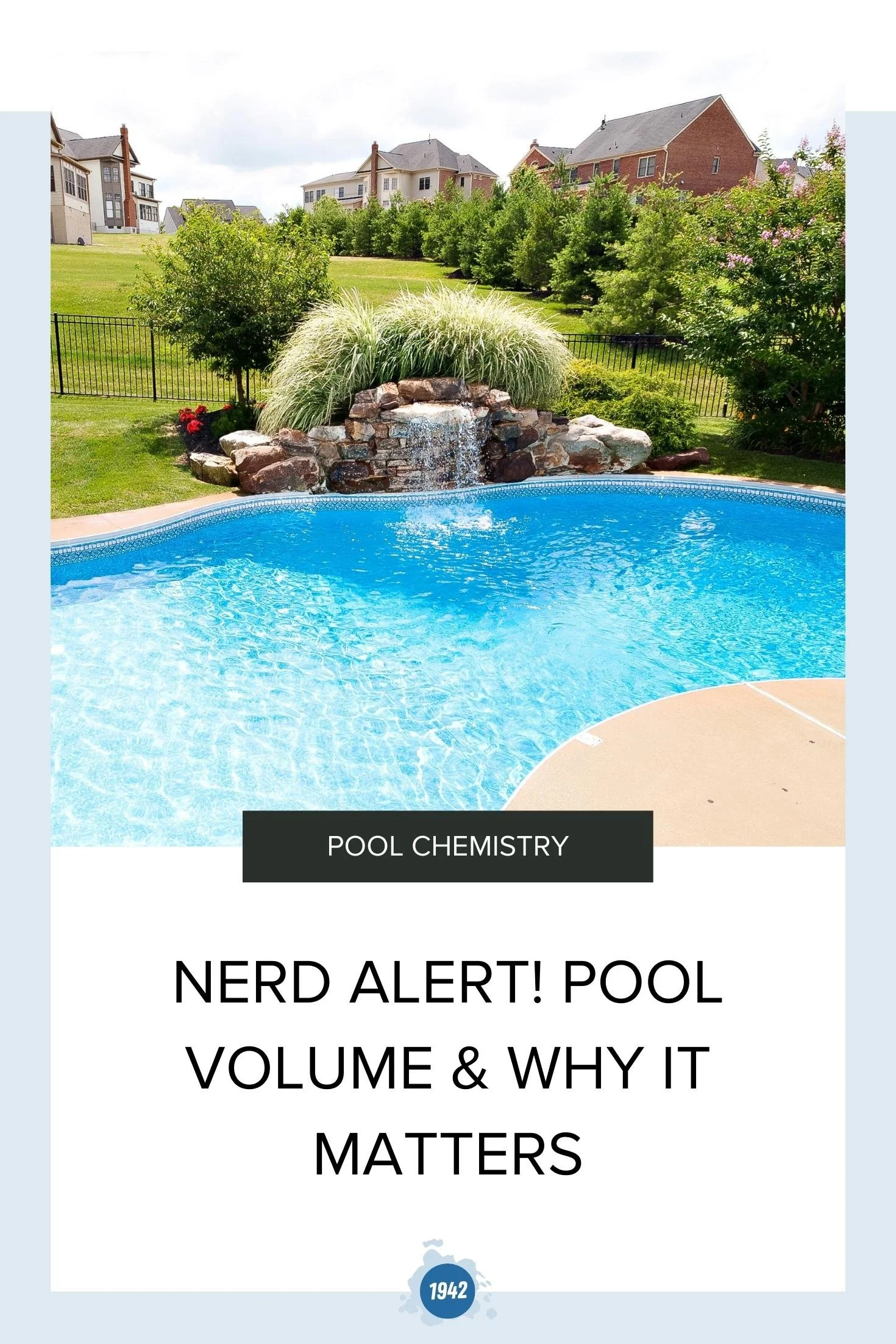Chlorine has been the number one choice to sanitize swimming pools since, well, forever. It has some drawbacks, but it does a great job killing germs and bacteria, oxidizing and deters algae but most importantly (until recently), it has been the least expensive.
Read MoreWhen it comes to water chemistry, the volume of your pool is an important number that you need to know. Knowing the volume - the number of gallons in your pool - is essential. The amount of pool chemicals needed to achieve and maintain water balance is dependent on the volume of water in your pool. Underdosing means more work for you, and overdosing means more money, both of which are a nuisance. The nice thing is that you only need to figure this number out once and you're good to go.
Read MoreBelieve it or not, there is a right and a wrong way to collect your water sample. A water sample is supposed to be a reflection of the water chemistry of your entire pool and staying on top of your readings is the foundation of your swimming pool season success. If a sample is contaminated or otherwise amiss, you can create big headaches and spend a bunch of money needlessly. Nobody wants that. Let's make sure you're collecting your water sample correctly for either your home test or for bringing a sample into our stores for analysis.
Read MoreWhen you hear saltwater, most people think of the ocean, not swimming pool water. But now millions of pools worldwide are saltwater pools, so let’s take a look at what having a saltwater pool means. But before we get to that, I mentioned ocean water, and if you have ever gotten a mouthful of ocean water, then you know how salty the water tastes. A saltwater pool is not the same; in fact, just a drop of water from a saltwater chlorinated pool contains less salt than a human tear.
Read MoreHave you ever wondered how rain affects your swimming pool water or if there is anything specific that you should do after it rains? As a pool owner, it’s a question worth asking because, after it rains, particularly heavy rain, the water of your pool changes both on a chemical and physical level. The amount of rain is important to consider. Light rainfall and showers will not impact your pool nearly as much as a rainstorm with heavy wind.
Read MoreThe number one reason to use borates in your swimming pool water is for easy maintenance. Check out the six key advantages of using borates:
Read MoreWhen it comes to maintaining your swimming pool and keeping your water balanced no chemical is more important than chlorine. Chlorine is the chemical compound that works to kill contaminants in your pool water like bacteria, sweat, urine, skin oils, and other microorganisms that could otherwise cause harm.
Read MoreWhat is Calcium Hardness in pools? Calcium hardness is a concentration of calcium ions which appears in the pool water in the form of calcium carbonate. Calcium is naturally present in water, but when it comes to your swimming pool water, it needs to be maintained and prevented from going either too high or too low by keeping it within the target range of 200-300 ppm. If Calcium Hardness is not kept within range, your pool water can become too aggressive or end up scaling the surface of your swimming pool.
Read MoreTotal Alkalinity (TA) is the total amount of alkaline materials present in the water. Also called the buffering capacity of the water. It is the water’s resistance to change in pH.
Read MoreYour swimming pool water chemistry is essential, and it needs to be kept in proper balance. Not only for swimmer comfort and safety but also to protect the swimming pool itself, and equipment. The pH level, in many ways, is the foundation of this balance.
Read MoreIf you notice that your pool water is cloudy after overcoming an algae bloom, most likely you need a coagulant agent. (make sure to rule out any chemical imbalances first) Clarifier and Flocculant are types of coagulant agents, and their job is to clump these tiny particles into larger clumps so that your filter can collect them or be flushed to waste.
Read MoreClearing a green pool is probably one of the most frustrating parts of pool ownership. Even the most caring pool owners can suffer with pool algae. We’ve been clearing green pools and helping pool owners clear green pools for a long time, so we know first hand the gut-wrenching feeling that can overcome you when you lay your eyes upon a green, swampy unsightly mess.
Read More











